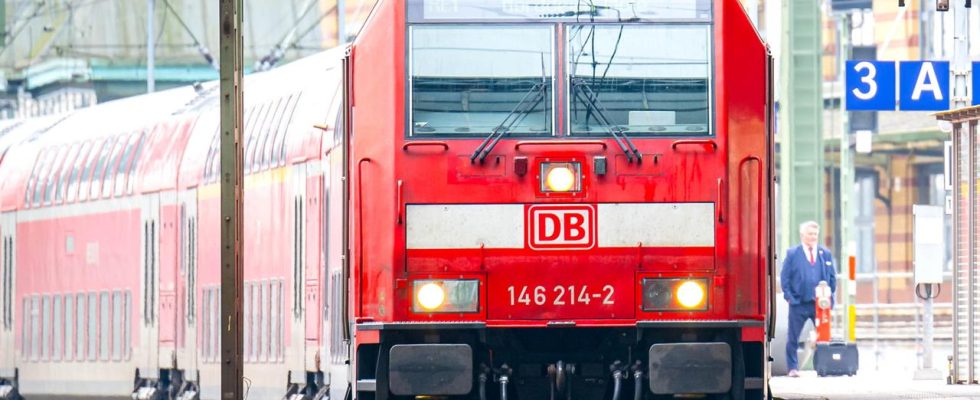Recently, the tariff dispute between the railways and the GDL had intensified. Now both parties are back at the negotiating table. The talks are constructive: a result is expected next week.
In the collective bargaining dispute between Deutsche Bahn and the train drivers’ union GDL, both sides are resuming negotiations. “Both parties are confident that they will be able to announce a result next week,” the railway said. The union will refrain from further strikes until then.
The negotiations in a “small circle and behind closed doors” were “intensive but constructive,” said the company. “An agreement was reached on many topics,” the railway said. Since the collective bargaining parties have agreed to secrecy, there will be no public communication about the status of the negotiations, it was said.
Last mediation in February
The dispute between Bahn and had previously been deadlocked for a long time. The two sides most recently sat together behind closed doors for several weeks in February to find a solution to the collective bargaining dispute. The former Federal Interior Minister Thomas de Maizière and Schleswig-Holstein’s Prime Minister Daniel Günther (both CDU) mediated this phase.
According to the dpa news agency, this time too it will not be a formal arbitration. The GDL in particular has so far rejected this. In such a case, both sides would first reach an arbitration agreement. This often means that an arbitrator’s decision is binding for both sides. This did not apply to the compromise proposal that de Maizière and Günther made in the most recent round of negotiations. The union therefore did not accept it.
Working hours, vacation and wages
A main point of contention recently was a reduction in working hours for shift workers from 38 to 35 hours per week, demanded by the GDL, with the same salary. The railway had previously shown itself ready to reduce working hours to 36 hours in two steps by 2028 without financial losses. However, GDL boss Claus Weselsky did not agree to this.
According to the GDL, the railway also pushed for the elimination of previous vacation options models, which the union rejected. In addition, the GDL was dissatisfied with the wage increase offered so far and the term of the collective agreement: the proposed 30 months were clearly too long.
“Wave strikes” impaired Railway even stronger
At the beginning of the week, the union called for a strike for the sixth time in the ongoing collective bargaining dispute. Most recently, the GDL relied on a so-called wave strike, which it announced at much shorter notice than previous strikes. This meant that the railway barely had enough time to create an emergency timetable. The GDL’s goal was to ensure that “the railway is no longer a reliable means of transport,” said Weselsky.

